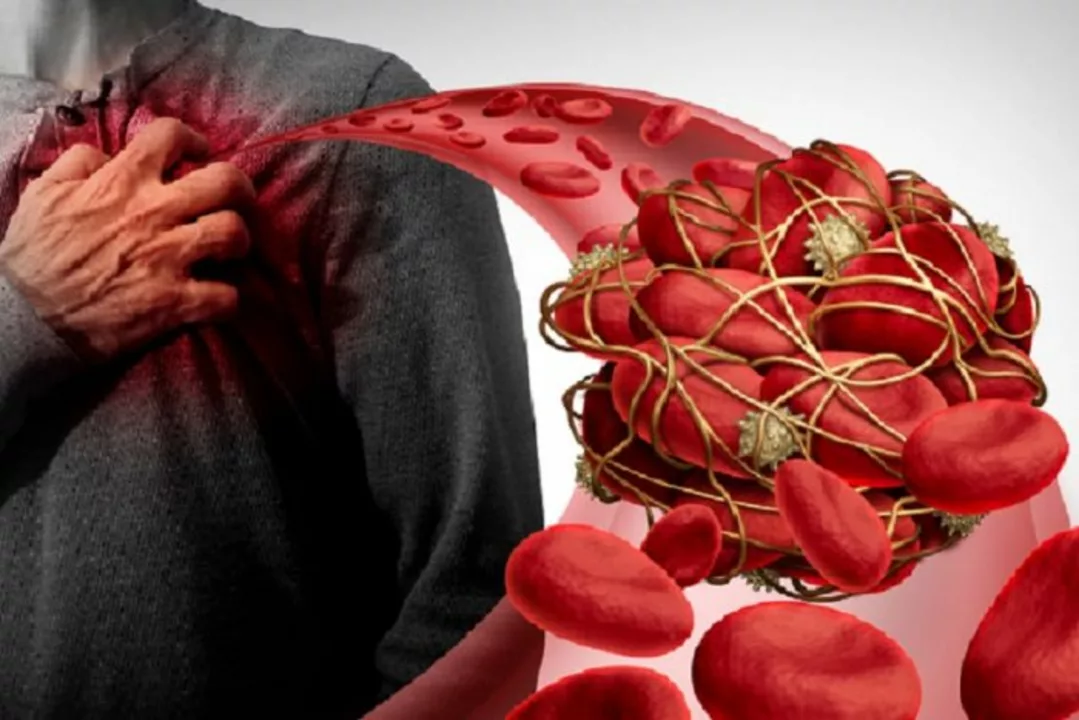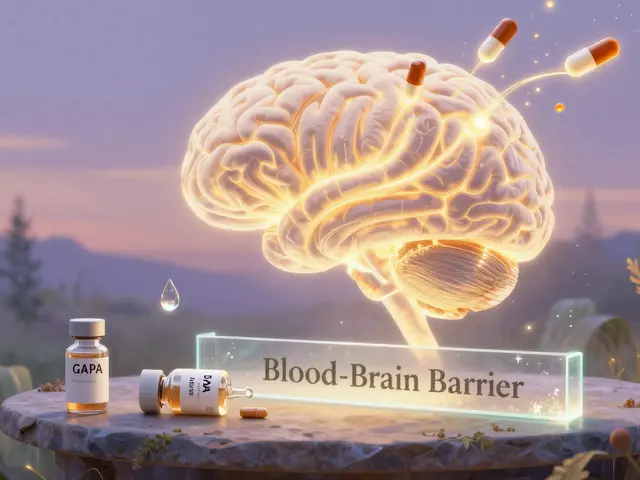Understanding Blood Clots and Stents
As a blogger with a keen interest in heart health, I've come across the topic of blood clots in stents and their relationship to heart attacks quite often. In this article, I will be discussing the connection between these two medical issues and providing you with valuable information to better understand the risks involved. So, let's begin by first understanding what blood clots and stents are.
Blood clots are clumps of blood that form when blood platelets stick together, potentially causing blockages in blood vessels. Stents, on the other hand, are small, mesh-like tubes made of metal or fabric that are inserted into narrowed or blocked blood vessels to help keep them open, improving blood flow and relieving symptoms of various heart conditions.
The Role of Stents in Treating Heart Conditions
Stents are widely used in the treatment of heart conditions, especially in cases where arteries are narrowed or blocked due to plaque buildup. When a stent is inserted into an artery, it functions to expand the artery and allow for better blood flow. This can help alleviate chest pain and reduce the risk of a heart attack. Stents are also used in procedures such as angioplasty, which is performed to open blocked coronary arteries and restore blood flow to the heart muscle.
While stents have been proven effective in treating heart conditions, they are not without their risks. One such risk is the development of blood clots within the stent, which can lead to severe complications, including heart attacks.
Blood Clots in Stents: A Dangerous Combination
Blood clots in stents can be a dangerous combination, as they can block the blood flow through the stent and lead to a heart attack. This is known as stent thrombosis, and it can occur shortly after the stent is implanted or even months later. Stent thrombosis is a rare but serious complication that can result in death if not promptly treated.
There are several factors that can increase the risk of blood clots in stents, including the type of stent used, the location of the stent, and the individual patient's medical history. It is essential to be informed about these risks and to communicate with your healthcare provider to understand the best course of action for your specific situation.
Preventing Blood Clots in Stents
Fortunately, there are steps that can be taken to minimize the risk of blood clots in stents. One of the most effective prevention methods is the use of antiplatelet medications, such as aspirin and clopidogrel. These medications work by preventing blood platelets from sticking together and forming clots. Typically, patients who have had a stent placed will be prescribed these medications for a specific period, depending on the type of stent and the patient's individual risk factors.
In addition to medications, maintaining a healthy lifestyle can also help prevent blood clots in stents. This includes regular exercise, a balanced diet, not smoking, and managing stress levels.
Recognizing the Symptoms of a Heart Attack
It is crucial to recognize the symptoms of a heart attack, especially if you have a stent in place. Some common symptoms of a heart attack include chest pain or discomfort, shortness of breath, nausea, lightheadedness, and cold sweats. If you experience any of these symptoms, seek medical attention immediately.
By being aware of the signs of a heart attack and seeking prompt medical care, the chances of a successful recovery are significantly increased.
Long-term Management of Stents and Heart Health
After a stent has been placed, it is essential to monitor your overall heart health and stay in close communication with your healthcare provider. Regular check-ups and tests can help ensure that the stent remains functional and that any potential complications, such as blood clots, are detected early.
Additionally, maintaining a heart-healthy lifestyle, including exercise, a balanced diet, and stress management, can help you enjoy a better quality of life and reduce your risk of future heart issues.
Conclusion
Understanding the relationship between blood clots in stents and heart attacks is essential for anyone who has undergone a stent placement or is considering this treatment option. By staying informed about the risks, taking steps to prevent blood clots, and maintaining a heart-healthy lifestyle, you can help ensure the best possible outcome for your heart health.







Comments
Craig E
5 May 2023What a profound reminder of the delicate balance between biomedical innovation and physiological fragility. We often gloss over the philosophical implications of implanting foreign materials within our own circulatory highways, yet each stent represents a pact between technology and the body's intrinsic healing instincts. By recognising the nuanced dance of platelets and endothelial cells, we grant ourselves a clearer perspective on the stakes involved. Ultimately, a measured appreciation of both risk and reward serves the patient community best.
Marrisa Moccasin
16 May 2023But have you considered-just for a moment-the hidden agendas behind those shiny metal tubes?!!! The pharma giants and device manufacturers are constantly pushing a narrative that you’re “safe” only if you swallow endless pills and keep that stent in place-it's a never‑ending cycle designed to line their pockets!!! And the data they release? Often cherry‑picked, sanitized, and filtered through layers of corporate spin!!!
Caleb Clark
26 May 2023Alright folks, let’s dive deep into what it really means to live with a stent and why staying on top of your medication isn’t just a recommendation-it’s a lifeline. First off, the antiplatelet regimen isn’t something you can simply forget about after a few weeks, because the risk of thrombosis can linger for months or even years depending on the stent type. You’ve gotta understand that platelets are like tiny stick‑fighters, always ready to clump together the moment the endothelial layer is compromised. When the stent struts expose a bit of metal, they act as a rallying point for those platelets, which is why the drugs are there to keep them in check. Now, I’m not saying you should live in a pill‑popping haze, but consistency is key-missing doses is a major slip‑up that can lead to catastrophic blockage. Think about it like this: you wouldn’t skip a water change for an aquarium and expect the fish to thrive, right? Your arteries need that same kind of diligent care. Nutrition plays a massive role too; saturated fats and excessive sugars can accelerate atherosclerotic buildup, essentially setting the stage for future complications. Exercise, on the other hand, boosts circulation and helps keep your blood vessels elastic, which is a win‑win for stent longevity. Stress management is often overlooked but chronic stress spikes catecholamines, which can make platelets a little more aggressive-yeah, it’s a real thing. And don’t forget about smoking; even a few cigarettes a day can increase platelet activation dramatically, undoing all the good you’re doing. If you’ve ever wondered why your doctor emphasizes follow‑up appointments, it’s because imaging can catch early signs of restenosis before you feel any symptoms. Regular check‑ups can also gauge how well you’re responding to the medication, allowing adjustments before something serious happens. On a practical note, setting reminders on your phone or using a pill organizer can save you from those accidental misses; I’ve seen countless patients avoid a crisis just by staying organized. Also, talk to your pharmacist; they often have insight into drug interactions that can affect antiplatelet efficacy. Lastly, keep an open line of communication with your healthcare team-don’t be shy about reporting any side effects, because sometimes a dosage tweak can make all the difference. Stay proactive, stay informed, and you’ll give yourself the best shot at a smooth, healthy future with that stent in place.
Vandermolen Willis
6 June 2023Wow, that’s some solid advice! 🙌 I appreciate the pep‑talk vibe and the practical tips-definitely gonna set some reminders on my phone. Thanks for breaking it down so clearly. 😊
Mary Keenan
17 June 2023Stop hyping stents; they’re overused.
Kelli Benedik
28 June 2023Oh my god, you’re totally missing the emotional toll these devices take on people!!! 😱 It’s not just a piece of metal, it’s a constant reminder of mortality, a silent whisper of anxiety that follows you everywhere!!! 💔 And the side‑effects, the endless medication-why can’t anyone see the drama unfolding inside our chests?!?!!! 😭
cariletta jones
9 July 2023Embracing a heart‑healthy lifestyle can truly empower those living with stents, turning challenges into opportunities for growth.
Kevin Hylant
19 July 2023Exercise and balanced diet reduce clot risk, and staying on prescribed meds is non‑negotiable.
Holly Green
30 July 2023It’s our responsibility to prioritize evidence‑based care over flashy procedures.
Eileen Peck
10 August 2023Totally agree, and just to add, the best way to keep tabs on stent health is regular coronary CT scans-sometimes they catch narrowing before symptoms appear. Also, drinking green tea has been shown to improve endothelial function, so consider swapping a coffee for a cup daily. Sorry for the typo‑s, but hope this helps!
Jonathan Harmeling
21 August 2023While personal anecdotes are valuable, adhering to guidelines set by cardiology societies ensures we all benefit from the most reliable knowledge available.